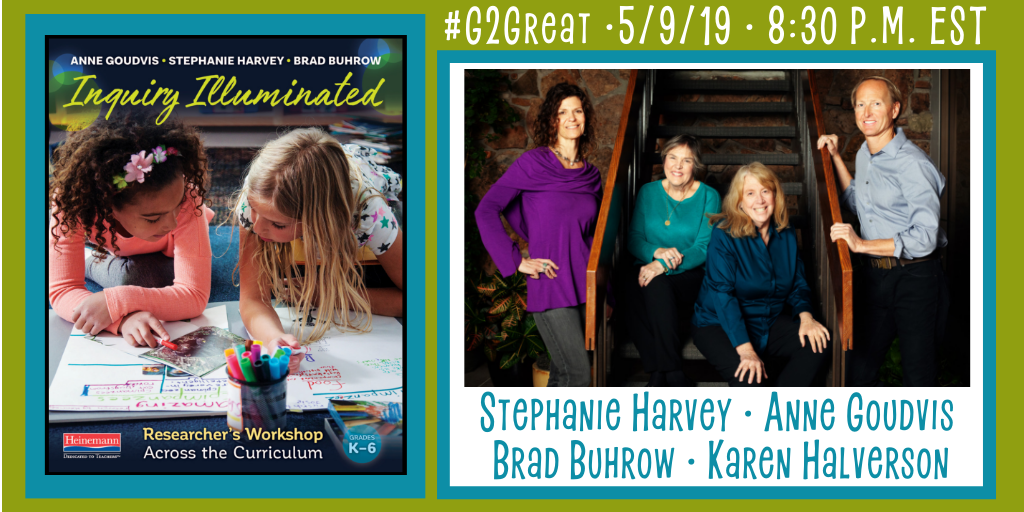Stephanie Harvey, Anne Goudvis, and Brad Buhrow joined #G2Great on Thursday, May 9, 2019 to illuminate their vision of the power and possibilities of Researcher’s Workshop. Stephanie and Anne are not strangers to #G2Great chats as they were here for the 3rd edition of Strategies that Work and Stephanie for From Striving to Thriving Writers and From Striving to Thriving Readers here. But this book has long been anticipated since Stephanie laid the groundwork for a “four a day” workshop model years ago. Our chat illuminated their vision of a “Researcher’s Workshop”, some essential elements of the workshop, a sampling of instructional elements, and the need for teachers and students to be curious.
What is “Researcher’s Workshop”?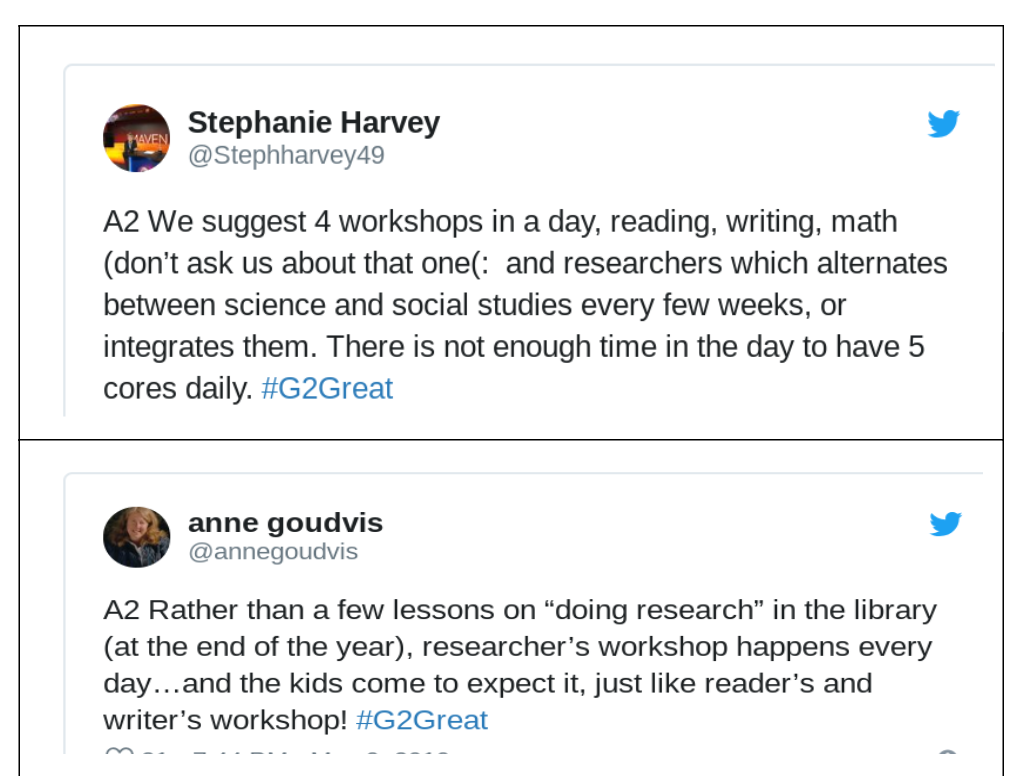
What are two crucial elements in “Researcher’s Workshop”?
Researcher’s Workshop scheduled every day is motivating to students because of the time dedicated to learning HOW to research within supportive inquiry frameworks as well as the TIME to have in depth student-chosen research rather than regurgitation of trivial facts and topics. Teachers who are already using “Passion Projects” will love the embedded essential questions available within curricular research in science and social studies.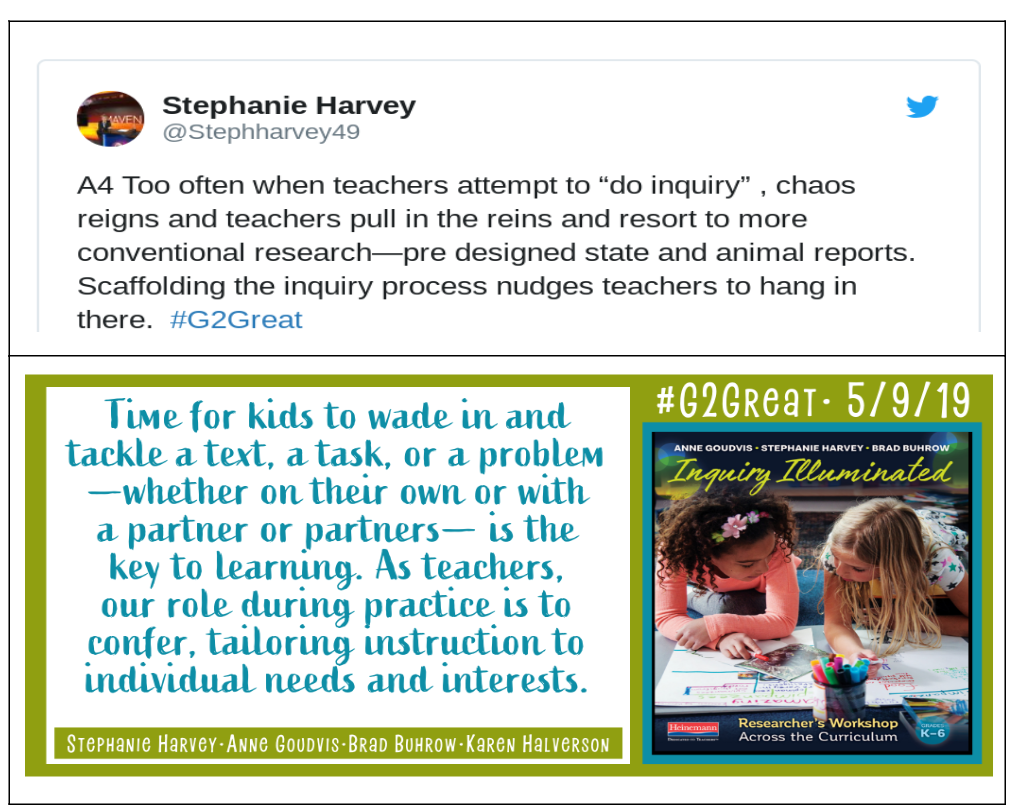
What are some of the instructional elements of a “Researcher’s Workshop”?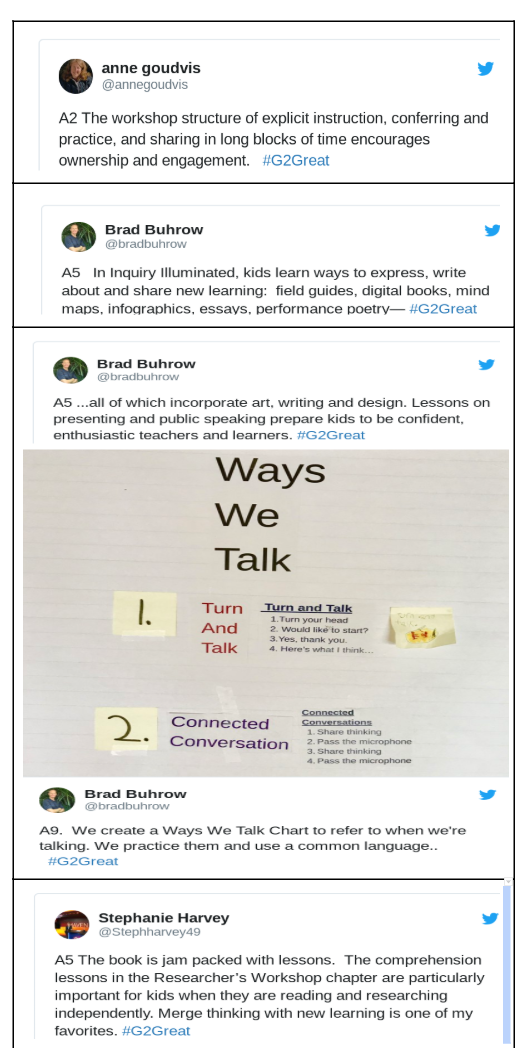
What is the role of curiosity?
Curiosity should never be about answering teacher questions. Both generating and answering questions are important life skills. Teachers can keep curiosity alive during school years by their own actions: the way they support and value student questions and answers.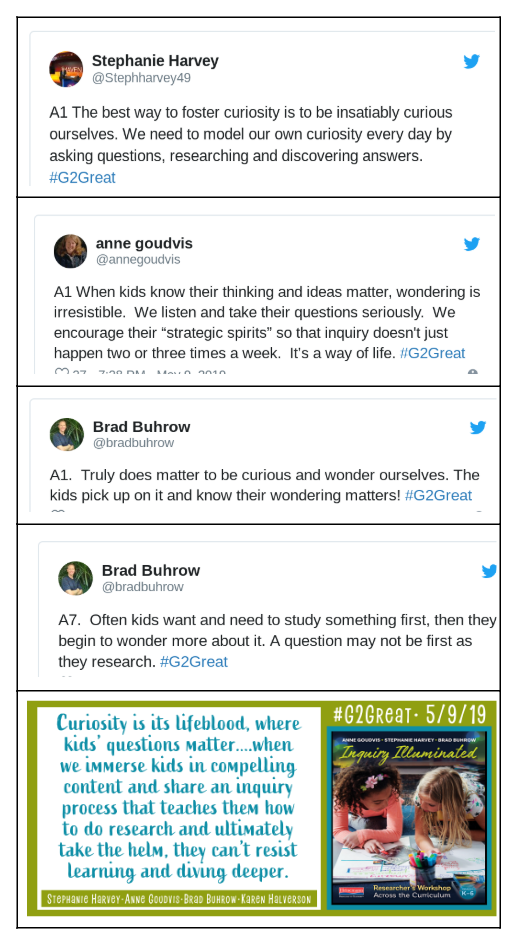
How will Researcher’s Workshop empower students?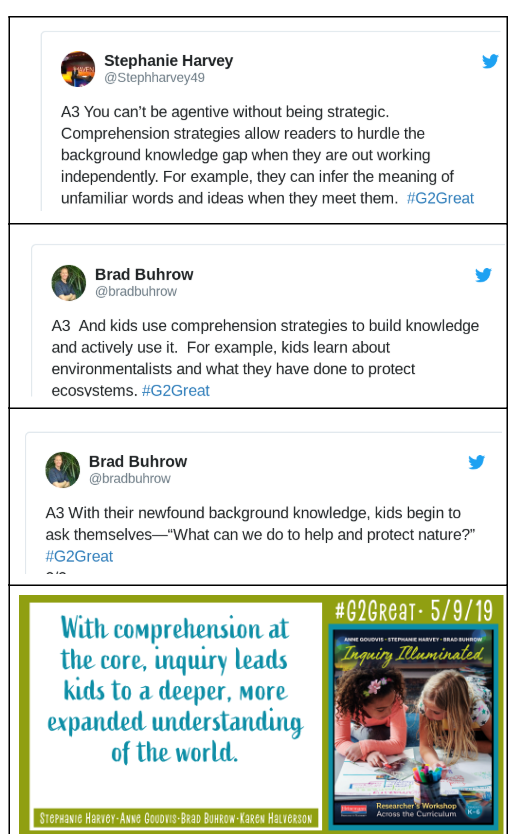
In summary, “Researcher’s Workshop” may be the answer for incorporating more content knowledge into science and social studies learning . . . and not just surface learning or “coverage” of topics. Managed choice as proposed by Allington and as described in Inquiry Illuminated will allow students to choose the learning that is most important for each of them and yet still meet curricular goals. Providing a chunk of time for that research will also provide additional practice time to solidify all those literacy skills – reading, writing, speaking, listening, and THINKING – as well as time for transfer. The perfect WIN/WIN for students and teachers. Dig into the links to research all of the possibilities!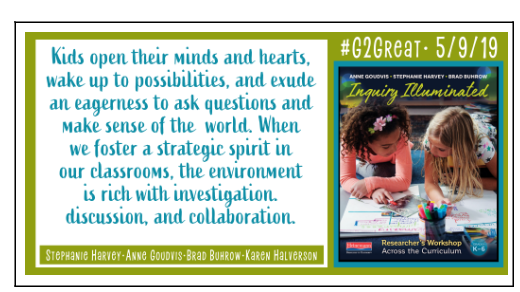
Additional Resources:
